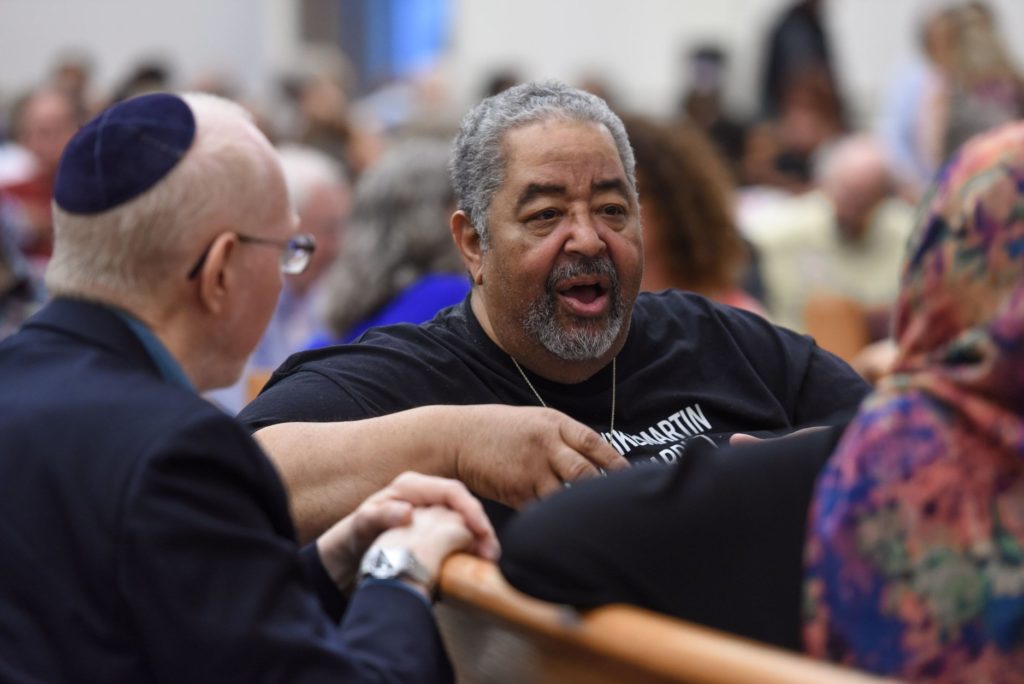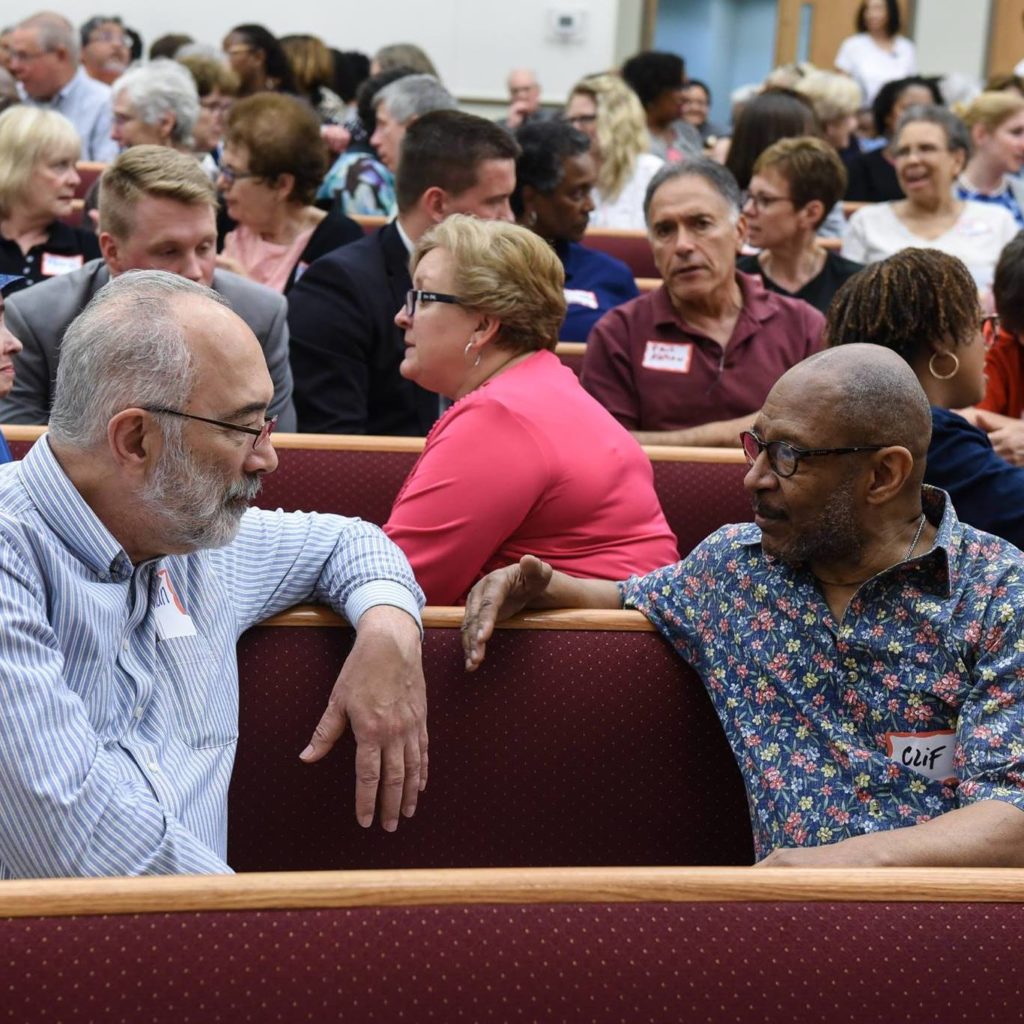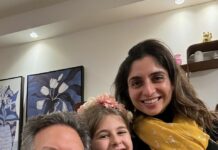
Americans have long been living in a divided society, but Beth Shalom Congregation hopes to help heal over some of those divisions through the Courageous Conversations series.
“It is a dialogue on race and faith bias,” said Beth Shalom Rabbi Susan Grossman. “So it’s not just a conversation among ourselves, but between Jews, Christians, whites, Blacks, Muslims, folks of all different religious and ethnic and racial and gender identities.”
The series takes place once a year over the course of several weeks.
This year, it was held on Tuesdays from Feb. 3 to 23.
The series started four years ago. Beth Shalom helped create and shepherd the series, Grossman said. The program initially started with six faith organizations, including Beth Shalom, St. John Baptist Church and St. John the Evangelist Roman Catholic Church. Today, individuals from as many as 56 different congregations participate.
The series began as a response to former San Francisco 49ers Quarterback Colin Kaepernick kneeling during the National Anthem and the national conversation it started, said Kathleen Ridley Cheek, vice chair of the deacon board at St. John Baptist Church. This in turn led to a series of conversations that included St. John Baptist’s Rev. Dr. Robert Turner, the late Rep. Elijah Cummings and state Del. Vanessa Atterbeary. Seeing a great deal of misunderstanding related to the controversy and the issues surrounding it, the three of them began reaching out to clergy they knew to discuss ways to foster better understanding in the community.

This led to a 2017 panel discussion that included lawyers, police officers, civic community groups and others in the local community, said Cheek. In time, this panel evolved into the Courageous Conversations series, as it is known today.
“We realized as we began planning this that it wasn’t only about racism, but we were living at a time when there was [an] incredible uptick in violence against Muslims and Jews,” Grossman said. “So that religious bias was a very significant issue as well, and if we were going to have a serious conversation in our community, these were interrelated issues. They weren’t isolated.”
In years past, the series often saw 250 people turning out, said Cheek. Attendance has sometimes been split across multiple locations in a single evening, with participants then being broken up into smaller groups of 10 or 12.
During the conversations, participants are asked to discuss subjects such as their own experiences with racial or religious bias or discrimination or with unearned advantage or privilege, Grossman said.
“There’s not often that you have opportunities to speak with someone and spend time with someone Jewish or Muslim or Seventh-day Adventist,” Cheek said, “because you’re polarized in your religious areas or your communities. But this brings down all the walls and it gives you an opportunity just to have a conversation. And just having a conversation opens so many doors.”






